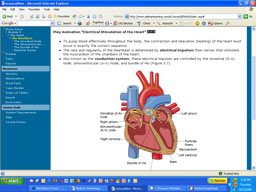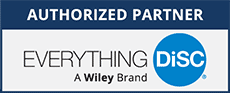 What manager hasn’t said to himself, at least once in his professional life, that his job would be so much easier if it weren’t for all the people he had to deal with?
What manager hasn’t said to himself, at least once in his professional life, that his job would be so much easier if it weren’t for all the people he had to deal with?
Odds are there isn’t one person who manages employees who hasn’t uttered that phrase. But getting work done through other people is what most managers are paid to do.
What if you could get everything you need to understand, manage and motivate your team and your customers in one small box? What if the key to harnessing human nature was in a package the size of a disposable lighter?
Never going to happen?
Well, it has. It is called DiSC and it sounds more like the magic decoder ring you used to get out of a box of breakfast cereal or something you would wear on your wrist than a powerful management tool that can change the culture and productivity of a company.
What Is DiSC?
DiSC is an acronym for four behavioral styles that all human beings possess in varying degrees.
Dominance: People who have high scores in D like to be in control and are active problem solvers who like challenges. They are frequently described as driving, determined, forceful, enthusiastic, and persuasive but can also be described as aggressive, dictatorial, opinionated and overbearing.
Influence: Influencers persuade through talk and are often emotional. They are described as convincing, magnetic, enthusiastic and persuasive. Influencers need recognition and are seldom at a loss for words but don’t always check their facts.
Steadiness: Someone with a high S score likes routine, a steady pace and security. Strong team players, they stand behind their commitments. Calm, relaxed and patient, they often are reluctant to initiate. Sudden change can cause anxiety and result in withdrawal.
Conscientiousness: High C’s like accuracy, follow rules and standards, make decisions based on facts and like to do quality work. Precision is important. They want details and they need time to decide. Try to force an answer and they may simply go along for the ride or withdraw completely.
DiSC gives supervisors and managers a roadmap to these behavioral styles, providing insight into what each employee needs in his or her job – whether they want the facts or just the idea, whether they want to be part of a team or would rather work alone.
That’s the first surprise DiSC offers.
New DiSC-Based Sales and Management Applications
The second surprise is the new DiSC-based applications available for sales and management that provide integrated packages that contain everything a business needs to improve their sales results, unlock the skills of its employees, build powerful management teams and change the way business gets done.
Called the Everything DiSC© Application Library, with modules available now for Sales and Management, these training programs were created by one of the premier training companies in the world – Inscape Publishing.
Inscape Publishing is a leading provider of assessment-driven, classroom learning solutions and a company with more than 35 years experience working on and with DiSC. It says the Everything DiSC approach helps make employees, “…more effective, more productive and more satisfied.”
“Inscape’s research shows that personality diversity is independent of gender, age and ethnicity. While those traits are important, managers frequently overlook the personality styles of their employees,” says Jeff Sugerman, CEO of Inscape Publishing. “The most effective managers know how to read this diversity of style. Everything DiSC Management, the newest addition to the Everything DiSC Application Library, teaches managers how to identify and adapt to their employees’ diverse styles. Managers can use these insights to be more effective with each employee.”
“The trick in management is not to treat all your employees the same; DiSC Management is a very simple way to help managers understand how to look at every employee as an individual and how to treat him or her in a way that is going to be the most effective,” says Barry Davis, the Vice President of Product Development and Marketing at Inscape Publishing. “Everything DiSC Management is a very simple way to bring out the best in every employee.”
DiSC…Simple, Not Simplistic
Unlike some training programs or approaches, learning the concepts around DiSC is easy. Davis says the short learning curve and the power of the concept make DiSC one of the most important tools a business can buy. “Its power is in its simplicity. It works because it is simple but not simplistic. It is powerful. It something you really have to experience. DiSC works.”
Scott Messer agrees. Messer, who is the President of Sales Evolution in Broomall, Pennsylvania, has been using DiSC for sales training for eight years but he says it applies in every business situation. “Understanding your own, natural behavioral communication style, being able to recognize the style of the person you are speaking to and then adapting your natural style to theirs is a secret weapon,” says Messer. “It allows you to get past the person’s filters and past the alligators in the moat that other people cannot get past.”
Messer says if you do the math, you recognize immediately, how important it is to understand the behavioral style of the person who is sitting across the desk from you.
“If the population were divided equally into 25% DISC – Dominance, Influence, Steadiness and Conscientiousness – 25% of the time you are perfectly attuned to the person you are speaking to,” Messer says that’s the good news. “The bad news is that 75% of the time, you are not. If you want a better result, you have to change your behavior.”
Messer and Sales Evolution are in good company. More than 135 Fortune 500 companies use Inscape DiSC products and more than a million people every year experience DISC. Companies are tapping employees’ potential and putting it to work in offices and businesses around the world. This is one training program that gets results.
Maybe it’s because the theory behind it is 2500 years old.
This is the first in a series of four articles about the DiSC model, Everything DiSC Management, the history behind it all and how it applies. Be sure to read the second article in this series, Digging into DiSC History.
Pat Muccigrosso is the former Director of Training & Development for the Business Services Group of ARAMARK and a guest author of Corexcel, specializing in DiSC-based learning assessments, online continuing education and workplace training. For more information about Corexcel and the training materials they offer, visit www.corexcel.com.
“DiSC” and “Everything DiSC” are registered trademarks of John Wiley & Sons, Inc.


 Many of our customers call or e-mail and want to know if they need to complete a certification course to purchase and use
Many of our customers call or e-mail and want to know if they need to complete a certification course to purchase and use 
